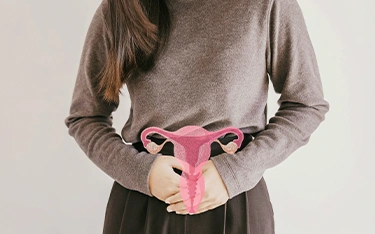FAQs
Yes, thyroid problems including hypothyroidism and hyperthyroidism can affect fertility by disrupting hormone levels that regulate ovulation and menstruation. Imbalanced thyroid function can make it difficult to conceive or maintain a pregnancy. With proper diagnosis and treatment, fertility can often be restored and managed effectively.
Thyroid disorders, such as hyperthyroidism, can interfere with reproductive hormones, causing irregular periods or anovulation (lack of ovulation). This hormonal imbalance may decrease the chances of conception. Timely management of thyroid levels can help regulate the menstrual cycle and improve fertility.
Yes, many thyroid-related fertility issues can be reversed with appropriate treatment. Balancing thyroid hormones through medication or homeopathy can restore regular ovulation and menstrual cycles. Lifestyle changes and stress management can also support reproductive health, increasing the chances of conception.
The timeline for fertility improvement varies, but many individuals notice positive changes within 3 to 6 months after achieving balanced thyroid levels. Regular follow-ups with healthcare providers and following treatment plans are essential to a successful pregnancy
Yes, homeopathy addresses the root cause of hormonal imbalance without side effects. It works by stimulating the body’s natural healing process, improving thyroid function, and restoring hormonal balance. Many patients report improved menstrual regularity and fertility outcomes with personalised homeopathic treatment.




